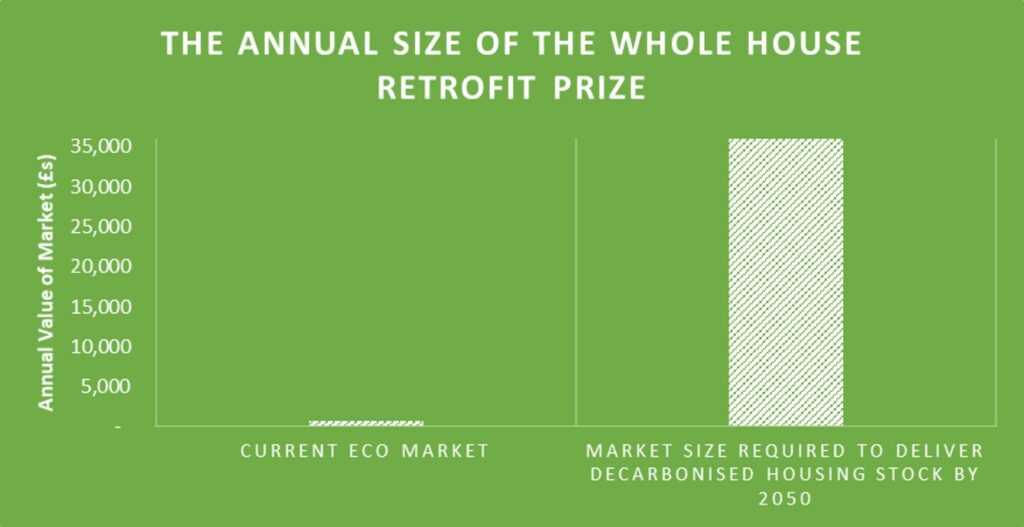
What the Future of the ECO?
That’s the question Andrej Miller tried to answer at yesterday’s PEPA conference. Andrej is BEIS’s Head of the ECO – so if anybody should have a clear steer on this, it’s him!
His message was loud and clear. It is the government’s intention to support deep retrofit. Achieving the net zero carbon target can’t be achieved without cracking emissions from housing. Maintaining the current average of 1.5 measures per property under ECO won’t get the stock anywhere near ready. The future is multi-measure installations, often staged across decades as part of a Retrofit Plan for a property. It’s a step change in approach requiring new skills and approaches, and will require a new kind of ECO. It suggests that ECO 4, due in 2022, could be a platform for Whole House Retrofit.
The £1000 Billion Opportunity?
Now here’s a fascinating stat. Andrej said that the cost of delivering a decarbonised housing stock by 2050 was ‘roughly the same as funding three London Olympics a year, every year until then.’ I did a bit of research, and I reckon that’s about £36bn per year, every year for 30 years. That is over £1000 billion! Contrast that with the current ECO, which I understand to be around £760 million a year, which would total just £2.2bn if maintained to 2050. A step change in investment is needed.

Plugging the Funding Gap
Of course, the ECO is just one of several possible routes to fill that funding gap. It’s currently targeted on the fuel poor, which leaves almost 90% of the population ineligible. It might remain that way, in which case some radical new initiatives are needed to plug the gaps in the private rented, owner occupied and social housing sectors. Andrej highlighted Tory manifesto commitments to provide £3.8bn in additional funding to social landlords, and £2.5m in “Home Upgrade Grants”. But in truth we won’t know the detail about this until the new Ministers responsible for housing and energy get their feet under the table. We have been waiting for significant new policies in this arena for over half a decade now.
Short Term Pain, Long Term Gain?
Now, the ECO industry is probably feeling a little persecuted at the minute, being forced as it is to transition to PAS2035 and PAS2030 (2019). In the long run, going first might prove to be a blessing in disguise. Andrej informed us that ‘ECO is the test bed but we want to equalise and raise standards, we are going to require other sectors to come on board too.’ Taking action in the ECO sector, where standards are currently too low, makes sense. For companies currently focused on ECO though, a reinvention as large-scale ‘whole house retrofitters’ could be a cute way to diversify to service a future market in deep retrofit across myriad sectors, accessing myriad funding schemes. Because if there is a multi-billion market, why wouldn’t you? The early transition might give your company a long-term competitive advantage so short-term pain might equal long-term gain.
Let’s Talk
Two of our businesses are actively supporting the industry to try and make this difficult transition a little easier. The Retrofit Academy CIC provides the Level 5 Retrofit Coordinator Diploma, which equips people with the skills and knowledge to apply retrofit best practice. Sister company Osmosis works with social landlords, installers and others to develop strategies for success in the age of whole house retrofit.
If you are at Futurebuild next week, please be sure to pop by our stands and we’d be happy to share our thoughts with you. We are easy to find – right by the entrance to the Whole House Academy, which offers free workshops and seminars.
